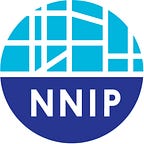Reframing Narratives around Childhood Health and Well-being
by Gabe Samuels
A publication of the Local Data for Equitable Communities Resource Hub
Childhood overweight and obesity have become increasingly prevalent in the United States, affecting more than 14 million children and adolescents nationwide, with higher rates among African American and Latinx children. Advocates and policymakers who care about children’s health need to evaluate statistics about racial and ethnic disparities alongside knowledge from people experiencing health inequities to arrive at real causes and sustainable solutions. Importantly, this mixed-methods approach can reveal the community conditions shaping opportunities for healthy eating and exercise instead of unfairly blaming families themselves.
Rhode Island KIDS COUNT, a nonprofit information-based advocacy organization, has spent the past year pushing back against harmful narratives through a community-engaged research project. Through their analysis of quantitative data and direct engagement with families, they developed a deeper understanding of the factors affecting the health of children and young people in Providence County, the most populous and lowest-income county in the state, to guide their advocacy and policymaking.
Innovative research and quantitative data collection
For years, Rhode Island KIDS COUNT has been a key contributor to research on child and youth health and well-being in Rhode Island, publishing the Rhode Island KIDS COUNT Factbook annually since 1995. In 2020, they uncovered concerning results after analyzing an innovative statewide dataset of clinical and claims data from public and private health insurance plans.
In their 2020 report, Rhode Island KIDS COUNT observed an acute increase in childhood overweight and obesity since the onset of the pandemic. They also found that the four communities in Rhode Island with the highest poverty rates, all of which are in Providence County, had above-average rates of childhood overweight and obesity, ranging from 36 to 52 percent, compared with 35 percent for the state as a whole. It bears mentioning that these metrics are determined by children’s body mass index (BMI), which alone is an inadequate measure of health. Still, higher childhood BMI has been associated with greater risk of type 2 diabetes, hypertension, and coronary heart disease.
When Rhode Island KIDS COUNT shared these findings, community members expressed concern that some stakeholders incorrectly attributed disparities to the decisions made by families of color and that the findings might further stigmatize children who are overweight and obese. This galvanized Rhode Island KIDS COUNT to reframe these narratives by raising awareness about the root causes of racial and ethnic disparities in child health. They successfully applied to the Robert Wood Johnson Foundation’s Using Local Data to Address Structural Racism grant program to support this analysis and engagement.
Community-driven recommendations to understand and address root causes
It became clear early on that this effort would require buy-in from affected communities in Rhode Island, whose knowledge and experience were invaluable in identifying causes and developing recommendations for reducing childhood overweight and obesity. They formed a project advisory committee, which included representatives from Family Service Rhode Island, LISC, One Neighborhood, and Progreso Latino — all organizations leading Health Equity Zones in their communities — as well as other state and local government agencies. Collaborating with the committee members, they designed and facilitated conversations to interpret the data and explore root causes in Central Falls, Pawtucket, and Providence, three Providence County communities experiencing high rates of poverty and childhood overweight and obesity. Rhode Island KIDS COUNT compensated community groups for their time.
In June 2023, Rhode Island KIDS COUNT compiled their findings from this mixed-methods approach in a report (PDF), accompanied by a one-page handout outlining action steps (PDF) for parents and community advocates hoping to improve access to food, nutrition, and physical activity for children and young people in their communities. The grassroots community engagement helped them supplement Factbook findings from previous years with more context. These conversations also emphasized the value of an assets-based framework, which focuses on the capacity of community members to enact positive change rather than the problems in the community. They identified four key barriers faced by families that affect adolescent health and well-being:
- Food access/food insecurity and nutrition: Families may have limited access to nutritious food because of high prices, limited healthy food options nearby, or lack of awareness of where these healthy options are located.
- Built environment: Families with limited access to green space, public transportation, or safe, walkable areas have fewer opportunities for exercise and mobility, which can negatively affect health. Other local conditions, such as air and noise pollution, can have adverse health impacts.
- Poverty and socioeconomic stress factors: Stress factors associated with poverty may include depression, anxiety, trauma, or lack of sleep, all of which can have adverse health effects.
- Weight stigma and discrimination: Children and families may experience bullying and marginalization due to stigmas around weight gain, which can further harm mental and physical health.
Rhode Island KIDS COUNT also held a public event to share their findings at a local farmers market and community center, as suggested by the advisory committee. Forty people attended the event, including community activists, public health professionals, educators, and staff from local insurance companies.
The organization’s project demonstrated the numerous benefits of collaborating with community members on research, which led to richer findings and helped build trust that will serve as a foundation for future partnerships. Together, Rhode Island KIDS Count and members of the community have expressed interest in supporting Rhode Island’s Health Equity Zones initiative by contributing community-level data and further promoting positive narratives to eliminate inequities in children’s health and well-being.
